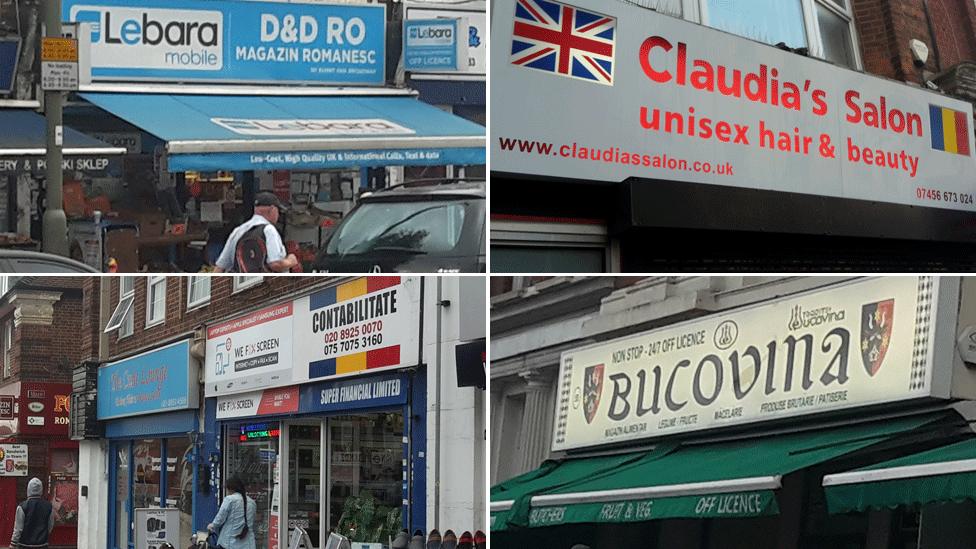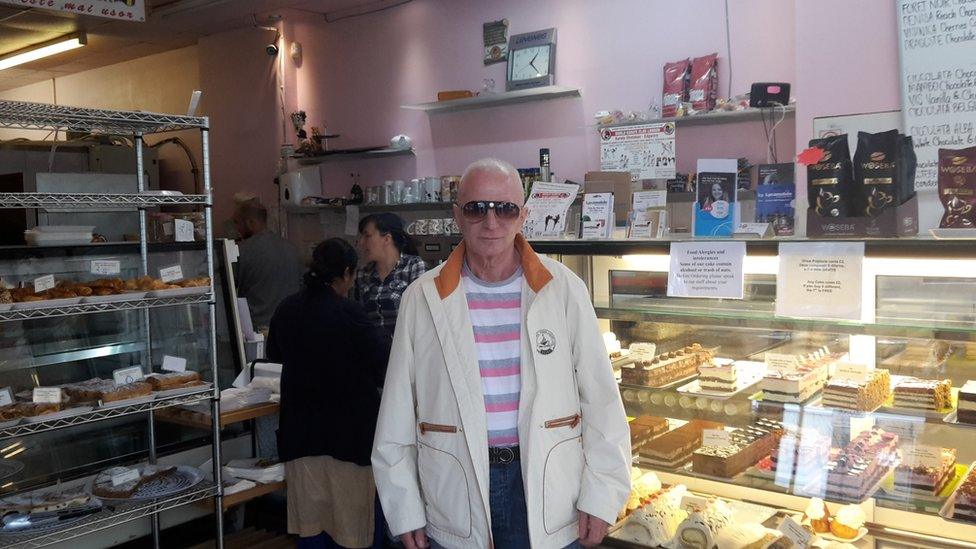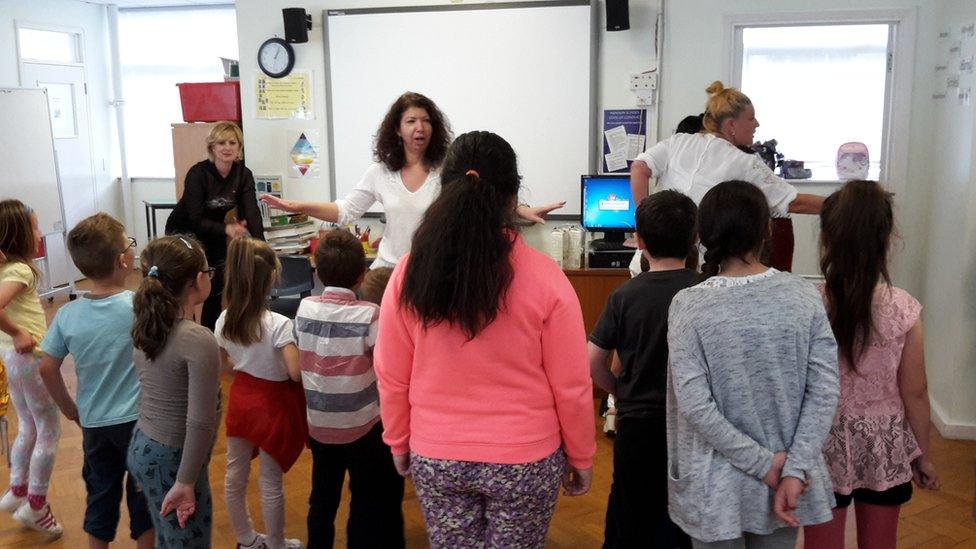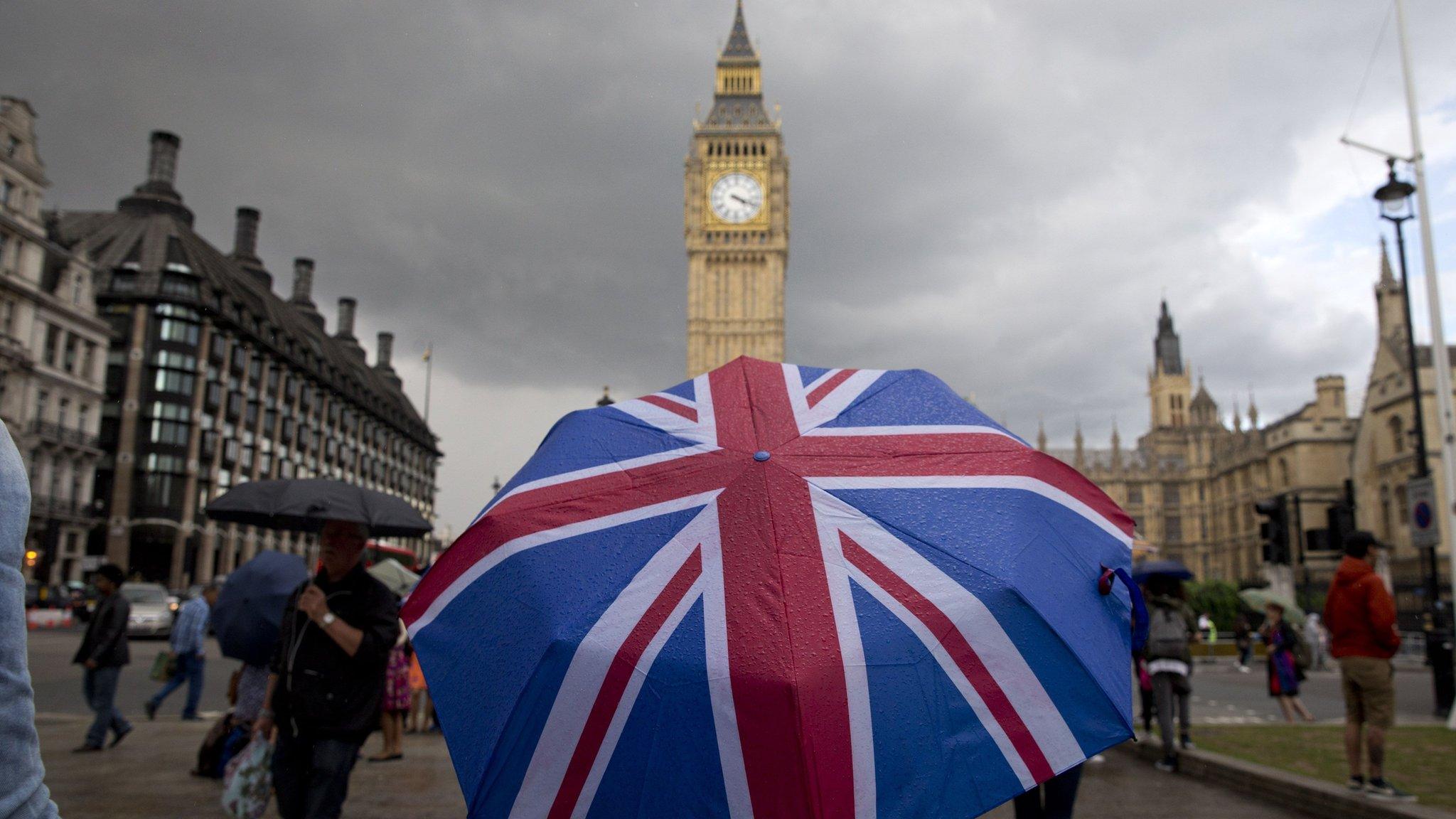Brexit vote: Romanians anxious about future in UK
- Published

The UK's Romanian population has almost doubled since 2013
The UK's vote to leave the European Union has stunned most Romanians who live here, sowing confusion and doubt in a community that has grown dramatically since the country's accession to the EU in 2007.
Levels of anxiety in the community were heightened by headlines in Romania itself such as: "All Romanians to be kicked out of Britain after the referendum".
Many have felt increasingly vulnerable and disorientated, although the surge of xenophobic abuse directed at Poles has not been reported by Romanians.
Romanians tend to keep their heads down and are less likely to report such incidents, although there have been examples of children at school being told by classmates to go back to Romania.
The talk is of little else but Brexit among parents gathered at a Romanian Saturday school in north London, while their children aged four to 12 sing, dance and learn Romanian language and culture.
Gabriela Segal, who arrived in Britain in 2004. was shocked by the lack of awareness among her compatriots.
"On Friday at 8am, the day after the referendum, several people called and asked me: 'If I go on holiday now, will I be allowed back in when I return?' or 'Should I go to Israel to work because we can't work here anymore?' or 'We have relatives back in Romania, should we bring them here now?'".
Maria, who has lived in the UK for 10 years and is one of the many Romanian cleaners in London, is more philosophical.
"I am calm, I am not stressed out," she says. "I hope things continue to go well, so we can work and mind our own business.
"I want to stay here because in Romania I could not find any work at my age of 55. Not even youngsters can find work there, never mind people like me."

Patisserie owner Ovidiu Sarpe is confident about the future for Romanians in the UK
The north-west London suburb of Burnt Oak has become something of a Little Romania in recent years, widely pronounced as "Bontoc".
At his patisserie, businessman Ovidiu Sarpe, a 37-year veteran of the UK's Romanian community, is sanguine about the future.
"I don't see a great impact, although Romanians are scared. Once you have a National Insurance number, you have a job, you are a worker, you provide for your family here, you have children here, let us see who can kick you out" he said.
Growing population
The Romanian community has been one of the fastest growing in the UK, reaching an estimated 223,000 in 2015, and more National Insurance numbers were issued to Romanians than any other nationality in the year to March, external. An NI number enables you to work and, potentially, claim benefits in the UK.
According to the Office for National Statistics, the number of Romanians in the UK was 128,000 in 2013, but that rose dramatically with the full opening of the UK labour market to Romanians and Bulgarians on 1 January 2014.
The growth in net migration for 2015 from EU countries came largely from Romanians and Bulgarians, and Romanians made up by far the biggest group of EU citizens requesting NI numbers in the past year.
The biggest job market for Romanian men is in construction and it is virtually impossible to pass a building site in London without hearing Romanian spoken.
Some argue that such building sites would grind to a halt without them. Equally, if the housing market stalls, many would risk losing their jobs, with a predicted knock-on effect on livelihoods.
Cristina Irimie, director of a recruitment agency for Romanians in north London, says that even after the 23 June referendum there has been strong demand for bricklayers and plumbers, but also for doctors or nurses.
And yet the fall of the pound has also made Britain less attractive for highly qualified professionals, including doctors.

Children learn their parents' language and culture at a Romanian weekend school in London
Amid the anxiety and confusion at the north London Saturday school, organiser Veronica Costache retains some optimism.
"Brexit is a challenge and an opportunity. We must look at the positives. We have to finally improve our English, to sort out our papers and to improve ourselves," she says.
"There are so many courses for qualifications, there are so many opportunities the British state offers immigrants that we have to take advantage of them and acquire legal status."
- Published1 January 2014

- Published29 June 2016

- Published27 June 2016

- Published26 June 2016
